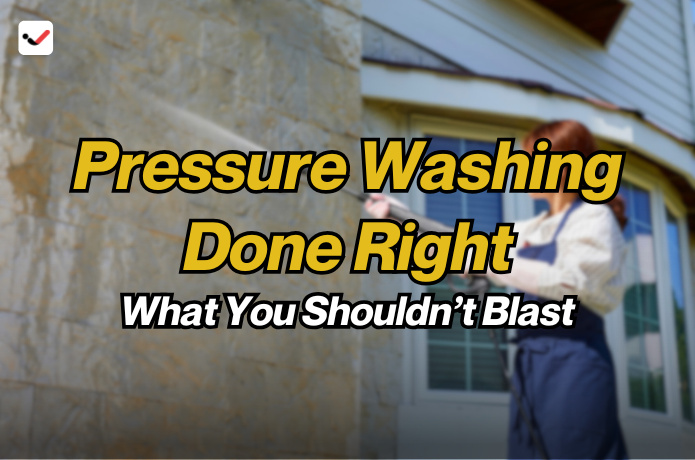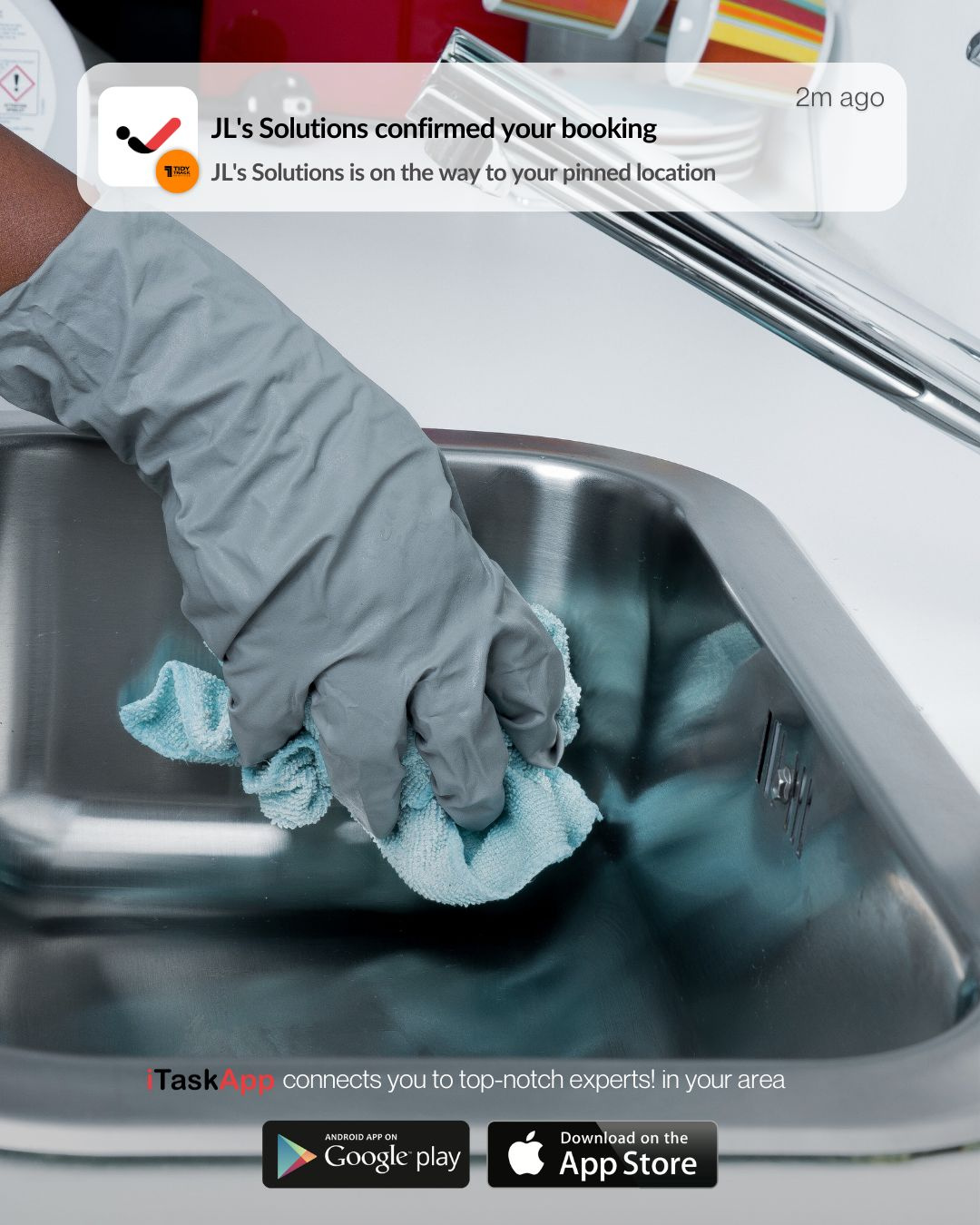Pressure Washing Done Right: What You Shouldn’t Blast
Pressure Washing Done Right: What You Shouldn’t Blast

Pressure washing is a fast and powerful way to clean outdoor surfaces. With the right equipment, dirt, mold, and grime can be washed away in seconds. Many homeowners and property managers use pressure washers to make driveways, decks, and siding look new again. But while pressure washing can be effective, it can also do serious damage if used the wrong way or on the wrong surfaces.
Knowing what not to pressure wash is just as important as knowing how to do it. Some materials can be cracked, stripped, or destroyed by the strong water stream. Others can cause safety issues or require special care. Whether you’re doing the job yourself or hiring a professional pressure washing service, understanding what to avoid can save time, money, and unnecessary repairs.
1. Electrical Panels and Meters
It might seem like a good idea to clean around the electric meter or panel on the side of your home. But pressure washing these areas is a big mistake. Water can get inside the box and damage wires, circuits, or even cause a short. If water enters these systems, it can lead to costly repairs or even a power outage. Always clean around them by hand and keep the water stream away.
2. Air Conditioning Units
Your outdoor AC unit needs to breathe to work properly. Blasting it with high-pressure water can bend the fins and damage internal parts. While it’s okay to clean it gently with a garden hose, a pressure washer is too strong. A clogged or damaged AC unit won’t cool your home well and may lead to higher energy bills or complete failure.
3. Asphalt Shingles
One of the biggest pressure washing mistakes is using it on your roof, especially if you have asphalt shingles. The powerful spray can strip away the protective granules and shorten the roof's life. Worse, it can push water under the shingles, leading to mold, rot, and leaks. Roof cleaning should be left to soft washing methods that use low pressure and the right cleaning solutions.
4. Windows and Glass Doors
Windows may seem tough, but they are not built to handle pressure washing. The force can crack glass, break seals, and cause leaks. Plus, pressure washing can push dirt and water into window tracks, causing them to stick or rust. Use a soft cloth and a squeegee instead. If you must use water, a light spray with mild detergent works best.
5. Old Brick and Mortar
Brick can usually handle pressure washing, but old or damaged brick is another story. Over time, mortar joints can weaken, and the spray from a pressure washer can break them apart. Once mortar is gone, bricks can shift or fall out, leading to major repairs. Always inspect the brickwork first. If it’s more than 20 years old or shows signs of wear, skip the pressure washer and go with a softer cleaning method.
6. Painted Surfaces You Want to Keep Painted
Pressure washing is often used to remove old paint before repainting. But if you want to keep the paint, it’s risky. High pressure can strip or chip paint, even if it looks solid. This is especially true on wood siding, fences, and decks. If your goal is just to clean the surface, reduce the pressure and use a wide spray tip. Test a small area first to make sure the paint stays put.
7. Outdoor Light Fixtures
Outdoor lights often have small openings or seams that can let water in. Pressure washing these fixtures can short out the wires or break the glass. It can also knock the fixture loose from the wall. Instead of blasting your lights, wipe them down by hand or gently rinse with a hose.
8. Vehicles
While it may seem like a pressure washer is perfect for cleaning a car or truck, using too much pressure can harm the paint, strip wax coatings, and dent panels. High-pressure water can also get into sensitive areas like seals and electronics. If you do use a pressure washer for car washing, use the lowest setting, a wide-angle tip, and stay at least two feet away from the surface.
9. Stained Wood Decks
Wood is porous, which means it absorbs water. Pressure washing can drive water deep into the wood, causing it to swell, crack, or warp. It can also remove stain and finish, leaving the surface patchy and exposed. If your deck is stained and you want to keep it that way, clean it with a mild cleaner and a soft brush or a low-pressure washer designed for wood.
10. Gutters
It’s tempting to blast out leaves and clogs with high pressure, but doing so can damage your gutters. The pressure can bend or loosen them, especially if they are older or not firmly attached. The best way to clean gutters is by hand or using a special gutter-cleaning attachment that controls the flow of water safely.
Choose the Right Cleaning Method
The key to safe and effective pressure washing is knowing your surfaces. Some areas, like concrete driveways and stone patios, can handle high pressure. Others, like roof shingles and electrical components, require a gentle touch or completely different methods. Hiring a trusted pressure washing company can ensure that your property is cleaned without damage.
If you do it yourself, take the time to learn about PSI levels, spray tips, and the best ways to clean each surface. Use protective gear, keep a safe distance, and never aim the spray at people, pets, or delicate areas. Many homeowners make the mistake of thinking more power means better results, but in many cases, it just means more risk.
Pressure washing is a valuable tool when used right, but knowing what not to blast is critical. Misusing a pressure washer can lead to damaged property, expensive fixes, or even injury. Whether you’re refreshing your home’s exterior, cleaning up your backyard, or preparing for a paint job, take the time to do it safely.
Smart homeowners know that pressure washing services are not one-size-fits-all. With a little knowledge and care, you can enjoy clean surfaces without the damage. Choose the right method for each job, or consult professionals to get the job done properly and protect your home’s value.

